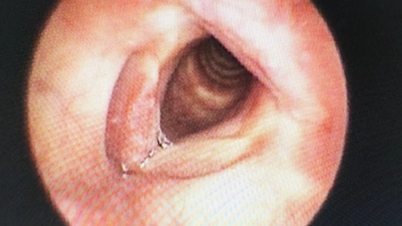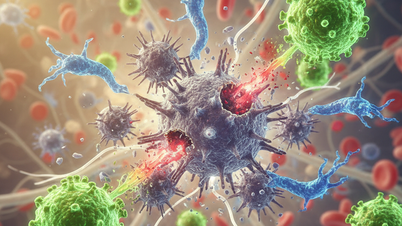Many people often abstain from rice, completely cut out carbs and prioritize protein. But carbs are also an essential macronutrient for health, the body's main source of energy. Abstaining completely can lead to unpredictable health consequences.
Pooja Udeshi, consultant sports psychologist and nutritionist at Kokilaben Dhirubhai Amabni Hospital (India), shared: Because carbs often cause weight gain or spike blood sugar, they are eliminated. Pooja admits that this way of eating may have some short-term results, but has serious consequences in the long term. Applying it for too long can come with serious side effects.

Many people often cut carbs completely and prioritize protein.
Photo: AI
Expert Pooja has listed the harmful effects of eliminating carbs from the diet:
Tired and lack of energy
Carbs are the body's main source of energy, especially for the brain. Lack of glucose can cause mental fatigue, poor concentration, irritability, and lethargy, according to the Hindustan Times.
While the body can eventually adapt to using ketones (the process of converting fat into ketones in the body, which usually occurs when the body doesn't have enough glucose for energy), this transition doesn't go smoothly for everyone and may not be sustainable in the long term.
Digestive disorders
Whole grains, legumes, fruits, and vegetables are all rich in complex carbs, which are important for gut health. They provide fiber that feeds beneficial bacteria, promotes regular bowel movements, and reduces inflammation. Long-term carb restriction often leads to constipation and a weakened gut microbiome due to lack of fiber.
Nutritional deficiencies
Cutting out carbs completely can negatively affect the immune system, making people more susceptible to illness.
This way of eating can also deprive the body of essential nutrients like B vitamins, magnesium, iron, and antioxidants. It’s especially dangerous for women, older adults, and people with underlying health conditions. Long-term carb deprivation can impact everything from immunity to hormonal balance.
Gain weight again
Low-carb diets cause the lost weight to return. This can initially lead to rapid weight loss, mainly due to water and glycogen loss. However, excessive restriction can lead to cravings, overeating, and a slowing of the metabolism over time. This increases the likelihood of regaining the weight after reintroducing carbs.

Low-carb diets cause the lost weight to gain back
Photo: AI
Effects on the heart and mood
Eliminating healthy carbs like fruits and whole grains can increase your intake of saturated fats or protein-rich foods, which can in turn increase cholesterol levels, according to Hindustan Times.
Low serotonin levels due to reduced carb intake can cause mood swings or depression.
Instead of cutting out carbs completely, balance your diet, control your portions, and switch to healthier carbs, advises Pooja.
Increases the risk of cancer
A new study of nearly 44,000 participants, just published in the scientific journal Nutrition and Cancer, also found that the ketogenic diet - with very few carbs, high in fat, often used for weight loss - can increase the risk of all types of cancer, according to the health news site Eating Well.
Experts conclude that low-carb diets have a role in controlling obesity, diabetes or epilepsy, but they must be individualized and time-limited.
The goal isn't to eliminate carbs, but to choose quality over quantity. Because when it comes to nutrition, sustainability is more important than short-term fixes.
Source: https://thanhnien.vn/so-map-ma-kieng-com-6-hau-qua-huy-hoai-co-the-it-ai-ngo-185250722221927267.htm



![[Photo] Fall Fair 2025 - An attractive experience](https://vphoto.vietnam.vn/thumb/1200x675/vietnam/resource/IMAGE/2025/10/30/1761791564603_1761738410688-jpg.webp)



![[Photo] Standing member of the Secretariat Tran Cam Tu visits and encourages people in the flooded areas of Da Nang](https://vphoto.vietnam.vn/thumb/1200x675/vietnam/resource/IMAGE/2025/10/30/1761808671991_bt4-jpg.webp)



























![[Photo] New-era Party members in the "Green Industrial Park"](https://vphoto.vietnam.vn/thumb/1200x675/vietnam/resource/IMAGE/2025/10/30/1761789456888_1-dsc-5556-jpg.webp)









































































Comment (0)